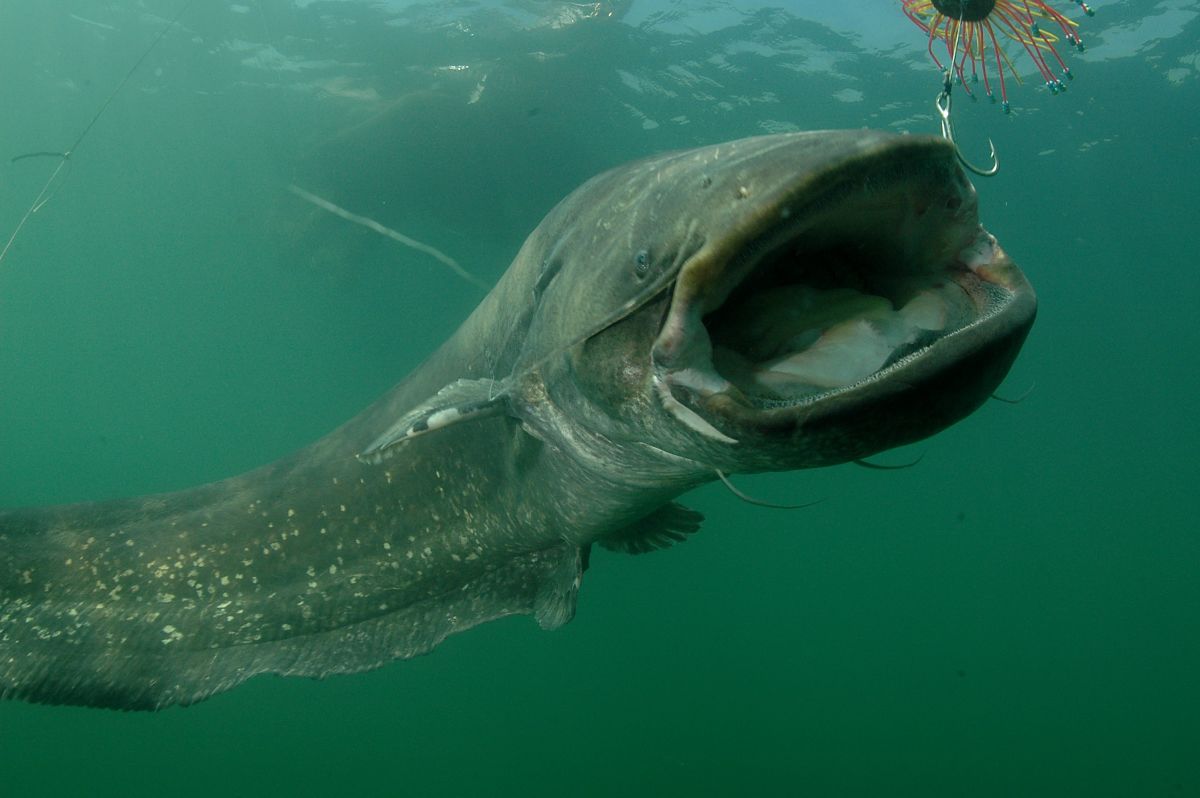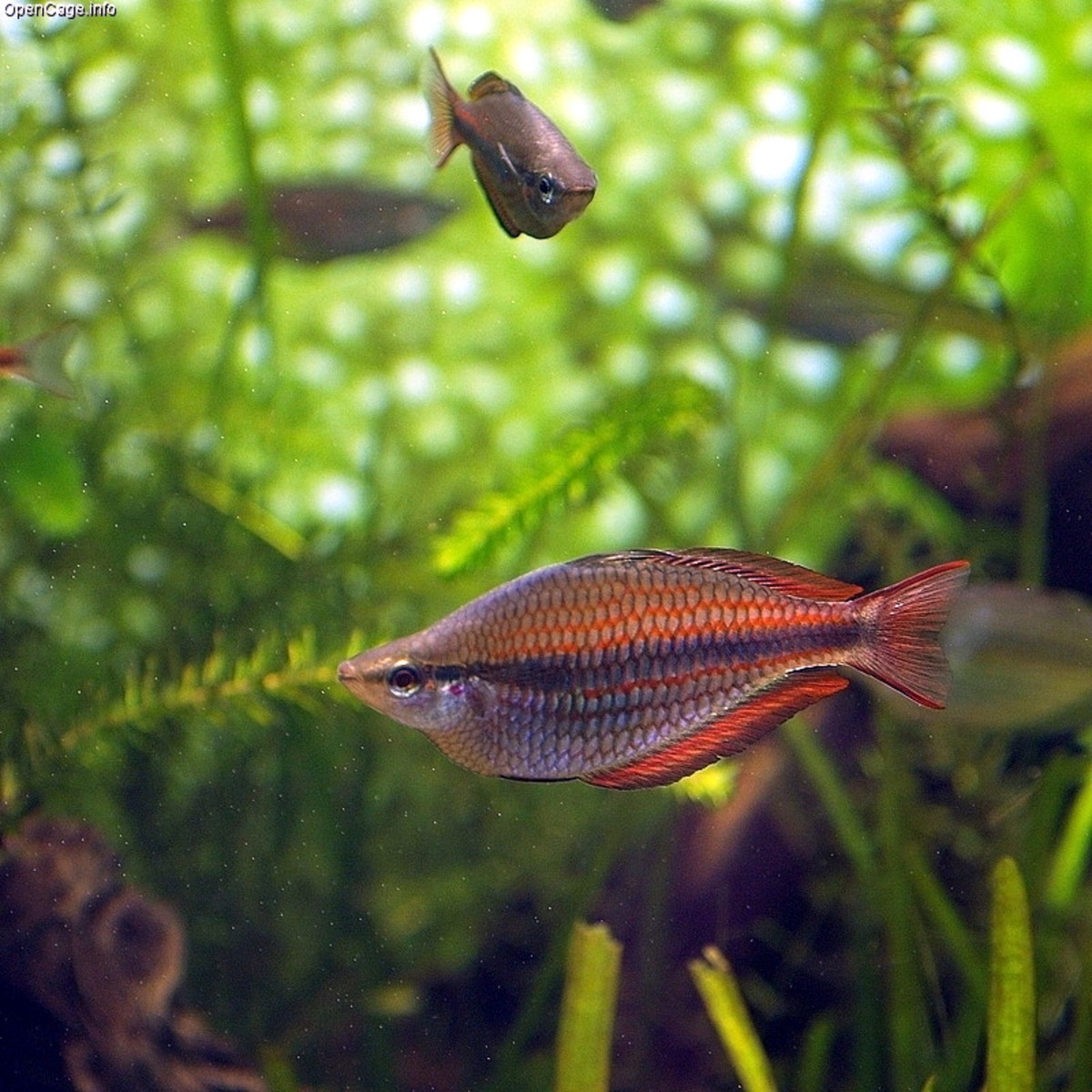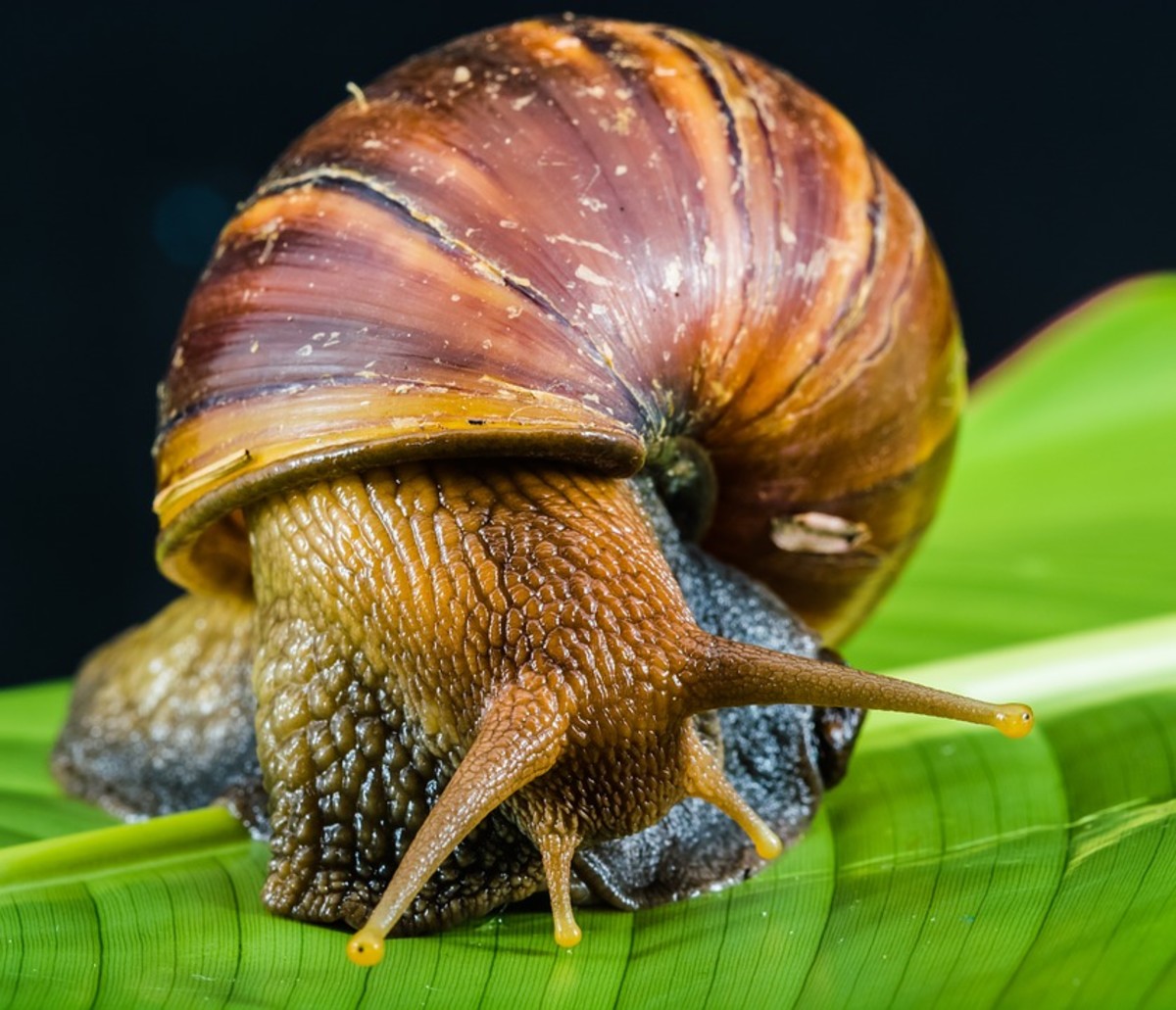- HubPages»
- Pets and Animals»
- Tropical Fish & Aquariums»
- Freshwater Aquarium Animals»
- Cichlids
A simple guide to keeping Discus Fish
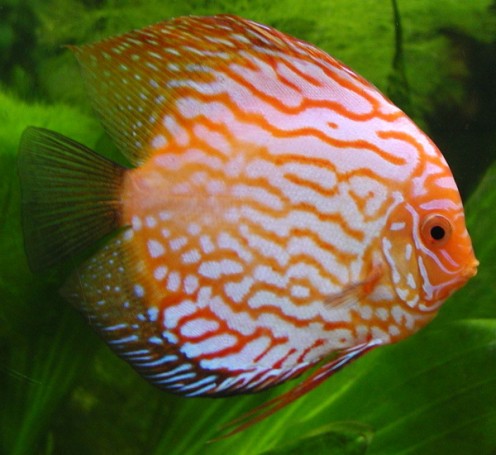
Since their introduction to the Fish keeping hobby more has been written about Discus than any other freshwater fish, due to there lively characters and beautiful looks Discus are now one of the most popular cichlids kept within the hobby. This is a brief guide to the successfully care and breeding of these amazing animals.
This Article Will Cover
General Discus Facts
- Discus History
- Discus Temperament and Behavior
- Natural Habitat and Diet
Discus Tank Requirements
- Size and decorations
- Tank Mates
- Water quality Requirements
- Diet
Discus History
When first introduced the the aquarium hobby wild caught Discus were a very rare sight mainly because of the belief that they were very hard not only to breed but also to just keep alive. Over time experienced hobbyists mastered the keeping alive aspect and logically the next step was to move on to breeding Discus. Slowly people managed to get their Discus to pair up and lay eggs but after moving the fry to a raising tank the fry would die within a short range of time. We now know the key is to keep the fry with their parents from whom the graze, getting all their required nutrients from their parents slime coating. Now Discus breeding is common place, providing a wide range of colors from albinos to bright blues and reds in addition to the naturally occurring wild forms
Natural Habitat and Diet
Discus are found most commonly in densely vegetated and woody slow moving rivers and backwaters of the Amazon river system in South America. These waters are generally warm, soft and acidic with very little current. Discus can usually be found in large groups and are generally known as a social Cichlid when not spawning. In the wild the discus's diet consists of Insects, aquatic Inverts, small fish and any other naturally occurring food sources that may be available. Many other commonly kept cichlids and tetras can also be found in these waters.
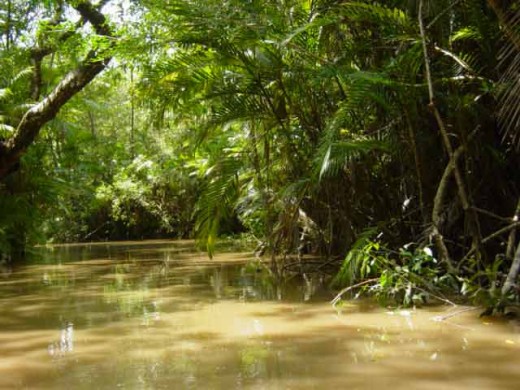
Discus Temperament and Behavior
Just in case you didn't know Discus are part of the cichlid family,
this means that they are fishes of changeable characters, personality
and behavior. They can occasionally be aggressive towards their own
kind and others, but generally only when pair bonds are formed or when
parents are with fry. If some consideration is paid to these matters in
cichlid terms they are generally fairly mild in behavior.
The
main problem I find with Discus comes from bullying within there own
group. Often with smaller groups of fish the individual at the bottom
of the pecking order has to deal with a lot of bullying and this can
lead to stress and even worse death. To avoid this the consensus seems
to be that Discus should be kept in groups of no less than 4 with the
optimum being 6 or more, especially when young. This seems to increase
confidence in the fish and helps spread the bullying out.
Discus Tank Requirements
When it comes to aquarium size the bigger the better ,not only for the
comfort of your Discus but it also makes it a lot easier to maintain
water quality as the larger the body of water within the aquarium the
more stable the water conditions become. Discus do not cope well with
fluctuating water conditions and because of this water conditions are
one of the most important things we need to pay attention to when it
comes to successfully maintaining a healthy Discus tank. I would
recommend to buy the largest aquarium your budget will allow with a
minimum requirement of no smaller than 120cm x 40cm x 50cm. Discus also
tend to prefer a deeper tank, my main display tank is 120cm x 44.6 x
80.5cm high if you are having trouble finding one of this size try www.justaddwateraquariums.com.au
I also find that with the higher tank the discus can choose their preferred light range.
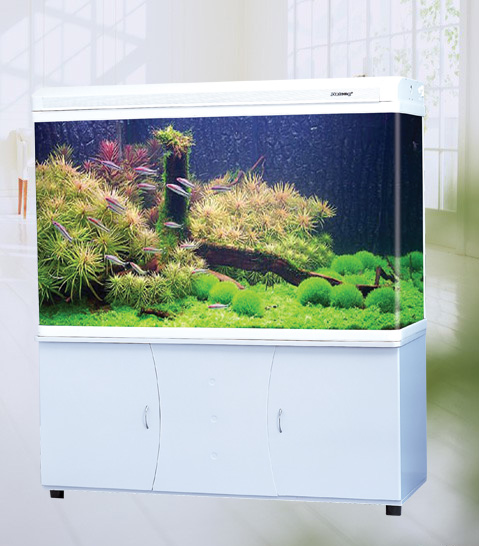
Plants
There are quite a few advantages in keeping Discus within a planted aquarium, the first and most obvious being the sheer beauty of this combination. Discus being a slow swimming and graceful fish look amazing and perfectly at home swimming amid plants gently swaying in the current. The most important advantage is that plants are known to act as natural filters and can help to remove toxic impurities from the water and this is a very important consideration for any Discus tank. Discus are sensitive to water conditions and quality and because of this they place more demand on the fish keeper to maintain high standards. A well planted aquarium will lead to an overall healthy aquarium environment and will also help to fend off common diseases. Plants also provide natural hiding places for discus. Discus tend to be shy fish and are sometimes bothered by activity outside the tank. Plants are preferred to other tank decorations since a large discus can easily hurt itself on a piece of driftwood or large rock. Providing a stress-free environment will also promote good health in your discus.
Tank Mates
Discus are social animals they live in groups in the wild and so are
most at ease being kept in groups in captivity. There is more to this
than simply placing a number of individuals in a tank however. Discus
live in communities of individuals with a complex social order, a
hierarchy of a dominant individual (usually the largest specimen) and
successively less dominant individuals, You can draw a few insights
from the above. One, your discus should be housed in a group by either
starting them off small and allowing them to sort out their social
hierarchy, or if starting with larger individuals (more than 2-3 inch
diameter), allowing space for the development of social dynamics. And,
if adding more Discus at a later time, making sure there is sufficient
room for them, that they are of substantially smaller size, and
possibly screening them from the existing community so that they can
see and smell each other, but not get to the new individual for a few
weeks. If you are starting with even small Discus in a small system
(under twenty gallons per individual), you should buy an odd number (3,
5) so that that the dominant individuals will not pick on a single
newcomer.
Other fishes that mix well with Discus include species
that are sub-dominant and less aggressive. Aggressive fishes will
outright intimidate discus into hiding, non-feeding. Faster,
more-vigorous feeders will not only get to the food first, but also
very likely scare your discus into isolation and lead to starvation.
Though
there are many other fish species that will co-habit with Discus in
terms of temperament and other aspects of behavior, I am a big fan of
using animals that can be found within the Discus's natural environment.
This includes a large number of "ditherfish", smaller species, mainly
tetras that break up the environment, taking the discus "worries" away
from their minds, as well as a few hundred species of catfishes,
particularly Pleco's, armored cats and Corys.
Water Quality
The single most important factor in keeping Discus is wate quality.
There is a lot of information out there on this topic but for the
beginner it can be quite confusing and a worrying factor in Discus
keeping, So here is a simple easy to understand guide.
Ph
The
single most important factor (if the tank is mature) is PH as long as
the pH is on the acid side of neutral, between pH 6.0 and pH 7.0, your
Discus will be quite happy.
Stability of Ph because of 'soft' water
can be an issue for the beginner and as such until a little is known
about the interactions of calcium hardness(Kh) / General hardness (Gh)
on the acidity of the water(Ph) staying with water of 12 to 15 Gh and 5
to 7 Kh should give you stability of Ph and happy discus.
Nitrate, Nitrite & Ammonia
Ammonia
(1st stage of the nitrogen cycle) is a killer this is the waste
products from your fish and they are swimming in there own excretions.
These must be maintained at 0 at all times or your fish will suffer and
probably die.
Keep an eye on these levels when adding new fish
to your aquarium whilst the biological capacity of the filter catches
up with the increased load.
Nitrite (2nd stage of the Nitrogen
Cycle) is a killer and levels should also be kept as low as possible.
This can be achieve by frequent partial water changes and or
encouraging good plant growth.
Nitrate (3rd stage of the
nitrogen cycle) levels should be kept as low as possible (below 25ppm
ideally) but is not as toxic as Nitrite and ammonia and won't kill your
fish overnight & quite high levels (above 100ppm)
Heavy Metals
A
heavy metal filter, (sometimes called metalex) which consists of a pre
filter pod, carbon block pod and a CBR2 pod will remove almost all
compounds that will harm your Discus fish. It will not however remove
hardness.
Hardness
If you live in an area with tap water
which as a general hardness (Gh) of over twelve degrees, a reverse
osmosis unit would be a very good purchase. This will provide pure
water which is easier to adjust to the desired levels, both for keeping
and breeding Discus. Both Metalex and RO units will require periodic
replacement of the cartridges. The frequency of cartridge replacement
depends on the levels of contaminants being removed from the tap water
and the volume of the water being processed.
If algae is or
becomes a problem it's worthwhile testing for phosphate which can be
introduces in the food you feed fish. High phosphate levels can again
be reduced with partial water changes which is by far the best method
as you will remove other things like nitrate as well. You may also use
a proprietary media like Rowaphos, placed in the filter this will
remove the excess.
Diet
When you purchase discus, ask what they have been eating. If there is a specific type of food that your discus are known to take readily, initially feed the same. However in order to keep them healthy, you will need to feed a varied diet. Adults require a good quality flake or pellet food at least once daily. Pellet feeds which enhance colour, such as 'Sera Discus Premium Food' or 'Tetrabit' are recommended. Discus are carnivorous and require frozen or live food occasionally. Frozen blood worms, brine shrimp and 'Discus Menu', a proprietary mix which contains beef heart, are all suitable.Live food is very expensive, though makes a great treat.Parasitic eggs are known to survive in frozen and live worm preparations. An exception to this is rinsed adult brine shrimp, live or frozen. A routine wormicide, every two to three months, is required.
Discus are generally not fussy eaters unless they are in some distress. Growing discus, about 5cm (2") in size, should be fed four to five times - per day while 10cm (4") discus can be fed twice daily. Don't give discus more than they will eat in an hour and siphon off leftover food an hour or two after each feeding. Discus are greedy eaters for the first few minutes, but then they like to nibble, so don't be too quick to remove the leftovers.

